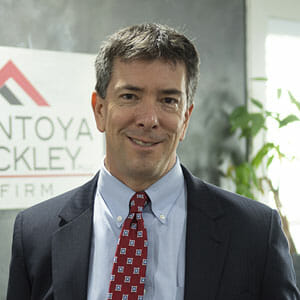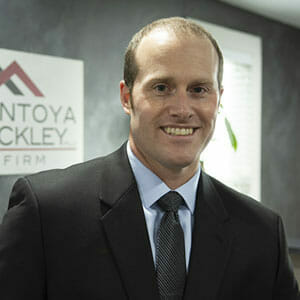
- June 06, 2021
- Vehicle Accidents
The state of Washington makes it easy for people get an accident report from the police after a car accident.
If you have been involved in a vehicle crash in Washington, it is important to obtain a copy of the police report for your own benefit, for insurance purposes, and as evidence if you wind up filing a personal injury lawsuit. Be aware that the paper you will probably receive at the collision site is just an exchange of information and report and not the actual police report, which will be filled out and filed later by the responding officer.
The car accident lawyers at Montoya Hinckley always obtain a police report for our clients. But if you would like to obtain a report on your own, perhaps the easiest way to get your car accident police report is to visit the Washington State Patrol (WSP) website and submit your request. You can also contact the local law enforcement agency that responded to the collision, or you can use the WSP Collision Report Search.
Getting a police report is just one step that needs to be taken after a car accident. If your accident resulted in injuries and damages, you are likely to be physically hurt, emotionally upset, traumatized, and faced with mounting medical bills, car repairs and other costs at a time when you may be unable to work. Insurance adjustors may pretend to be your friend, but in reality, they are only concerned with their company’s bottom line and will attempt to get you to settle for the lowest amount possible. Making mistakes and saying something that can damage your case can be costly, so you should not attempt to deal with the situation on your own.
Fortunately, there is help available from a personal injury attorney in Ellensburg at Montoya Hinckley. If your accident was caused by someone else’s negligence or fault, you may be entitled to a damages award from insurance or through a personal injury lawsuit. You may be able to recover your out-of-pocket costs as well as provide restitution for your intangible damages such as pain and suffering. Our attorneys understand what you are going through, and we will take the burden off you by dealing with the insurance company and handling all legal hurdles and requirements.
Our car accident lawyers have over four decades of combined experience in handling auto accident cases in Yakima and Central Washington, and throughout Washington State, so we have the knowledge of the laws, the courts, and the system that is necessary to effectively fight for the settlement award you deserve. Let us deal with filing paperwork, negotiating with insurance companies, and waging legal battles, so you can concentrate on your recovery and getting your life back to normal.
We offer a free and confidential consultation to discuss the circumstances of your car accident case and determine the best way to help.
There are no fees to you unless and until we win a settlement or award, so call Montoya Hinckley today at 509-895-7373 to get started.
Depend on Montoya Hinckley. Our experience means you’ll get aggressive, skilled representation.
How Long does it Take to Get a Police Report After an Accident?
If a police report has been filed, it will not take long to get it online, but make sure you meet all state requirements.
If law enforcement investigates an accident for which a report is required by RCW 46.52.070, a report will be made and immediately forwarded to the chief of the Washington state patrol at Olympia, Washington.
Motor vehicle accident reports are available to the public and can be readily accessed online, often within minutes after being filed. You can also submit a public records request to the specific police agency that responded to the collision, but this may take a bit longer.
What if no Police Report was Made by the Responding Police Officer?
If no police report was made, according to Washington law, you must file a Collision Report Form with the Washington Department Of Transportation if a police officer has not already reported it and any of the following occur:
- Death
- Injury
- Property damage of $1,000 or more
Your report must include:
- Your name, address and driver’s license number
- Your vehicle registration number
- Detailed and current information regarding your insurance coverage
- A detailed explanation of what happened during the accident
- Any weather or road conditions during the accident
If the police report was made by the law enforcement agency that responded to your collision, you do not have to submit a collision report.
How It Can Help to Obtain a Police Accident Report
If a police report is not filed at the time of the accident, you can lose out on valuable evidence that might help you collect compensation, whether you are filing a claim with insurance or filing a personal injury lawsuit.
When you file a claim with an insurance company, you have to give them information about your accident. Having a police report is one of the best ways to prove what happened and helps to establish who was at fault for the accident. If no police report is prepared, it will be up to you to provide the evidence the police would have gathered.
Information Found in a Police Report
Your police report will provide the responding officer’s opinion of how the accident happened, based on what you and the other driver tell the responding officer. There will be information that includes:
- where the accident happened
- the date and time of the accident
- both drivers’ contact information and insurance information
- notations of damage to the vehicles, any injuries, and information about witnesses
- an account of what the officer believes happened during the course of the accident
The officer may also ask you and the other driver to provide a statement about what you think happened.
Keep in mind that you may not know the extent of your damages at the time the police report is made, as injuries may not show up right away and damages to your vehicle may not be discovered until repairs are being made.
Our attorneys will make sure that all your damages are reported and request full compensation for all of them.
Compensation You May Receive
How a Car Accident Report Affects Washington’s “Comparative Negligence” Designation
The car accident police report is a piece of evidence that may factor into determining how much fault each party contributed to the accident. Washington has a contributory fault comparative negligence rule that apportions fault, or negligence, to each party involved in the accident based upon each party’s respective contributions to the accident. All factors that led to the accident, such as speeding and distracted or drunk driving, will be evaluated, and then fault is assigned accordingly. In a trial before a judge or jury, a person who is injured in an accident may recover only that portion of damages for which they were not at fault. For example, if you were found to be 10% at fault for an accident and the damages award was for $100,000, you could collect $90,000. If you are dealing with a wrongful death situation, it’s essential to consult with a qualified wrongful death lawyer who can navigate the complexities of such cases and ensure proper representation for your specific circumstances.
.
Therefore, what the police report says may play an important role in determining fault, and may factor into determining your settlement award or the final judgment any lawsuit you may file.
Call Our Car Accident Attorney in Yakima
At Montoya Hinckley, we understand how difficult it is for you to deal with a serious car accident, and we are here to help with every step — from acquiring a police report to negotiating with insurance companies, to taking your case to trial to obtain an award of damages to compensate for your losses. We will fight for your rights to fair compensation from all liable parties and all insurance companies. We are well-known for our client-focused-service philosophy and will work closely with you to provide support, answer your questions and concerns, and manage all aspects of your car accident claim process.
Contact us today at 509-895-7373. We look forward to putting our resources to work for you, and taking every step necessary to help you get the compensation you deserve.


 For over thirty years, Mr. Montoya has successfully represented clients in litigation involving multi-million dollar cases involving wrongful death, employment and business and commercial disputes. He regularly counsels businesses in Yakima and Central Washington on employment policies and helps businesses train employees regarding employment law compliance. He regularly speaks on employment issues. [
For over thirty years, Mr. Montoya has successfully represented clients in litigation involving multi-million dollar cases involving wrongful death, employment and business and commercial disputes. He regularly counsels businesses in Yakima and Central Washington on employment policies and helps businesses train employees regarding employment law compliance. He regularly speaks on employment issues. [  Tyler Hinckley represents individuals and businesses in state and federal court in litigation involving personal injury, property damage, employment claims, and business and commercial disputes. He represents individuals and businesses in a variety of employment cases, including wrongful termination, wage and hour, employment discrimination, and retaliation. Additionally, he represents individuals in residential construction defect and construction contract disputes, easement and boundary line disputes, and in cases involving damage to real property. Tyler also represents clients in administrative proceedings before state administrative agencies. [
Tyler Hinckley represents individuals and businesses in state and federal court in litigation involving personal injury, property damage, employment claims, and business and commercial disputes. He represents individuals and businesses in a variety of employment cases, including wrongful termination, wage and hour, employment discrimination, and retaliation. Additionally, he represents individuals in residential construction defect and construction contract disputes, easement and boundary line disputes, and in cases involving damage to real property. Tyler also represents clients in administrative proceedings before state administrative agencies. [ 



